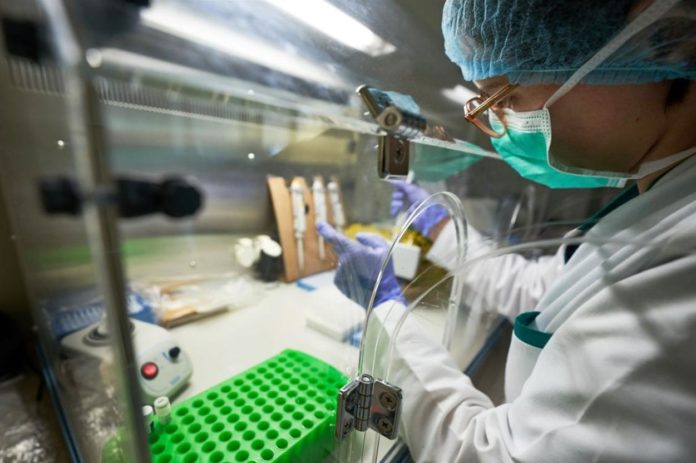The heart is one of the major organs that has been harmed by SARS-CoV-2 infection, specifically the heart cells, or ‘cardiomyocytes,’ that contract and circulates blood. Additionally, it is believed that damage to heart cells may contribute to the symptoms associated with prolonged COVID.
Patients with pre-existing heart disease have a fourfold increased risk of dying from COVID-19, the disease caused by SARS-CoV-2 infection. The case fatality rate increases from 2.3 percent to 10.5 percent in patients with COVID-19.
- Brief Anger Hampers Blood Vessel Function Leading to Increased Risk of Heart Disease and Stroke – New Study
- New Blood Test Pinpoints Future Stroke Risk – Study Identifies Inflammatory Molecules as Key Biomarker
- Enceladus: A Potential Haven for Extraterrestrial Life in its Hidden Ocean Depths
- New Experiment: Dark Matter Is Not As ‘DARK’ As All We Think
- Scientists in Fear of This New Predator From Red Sea Eating Native Species in Mediterranean
SARS-CoV-2 enters our cells by hijacking a protein on the surface of the cells called ACE2. Spike proteins on the surface of SARS-CoV-2 bind to ACE2. After that, both the spike protein and ACE2 are cleaved, allowing the virus’s genetic material to enter the host cell. The virus manipulates the machinery of the host cell in order to replicate and spread.
A team of scientists at the University of Cambridge has grown clusters of heart cells in the laboratory using human embryonic stem cells and demonstrated that these cells behave similarly to the cells found in the body, beating as if to pump blood. Notably, these model heart cells possessed critical components required for SARS-CoV-2 infection, most notably the ACE2 receptor.
The research team, working in special biosafety lab, mimicked how the virus infects heart cells, using a safer, modified synthetic (‘pseudotyped’) virus decorated with the SARS-CoV-2 spike protein. They then used this model to screen for possible anti-infection drugs.
The Wellcome-MRC Cambridge Stem Cell Institute’s Dr Sanjay Sinha said:
“Using stem cells, we’ve managed to create a model which, in many ways, behaves just like a heart does, beating in rhythm. This has allowed us to look at how the coronavirus infects cells and, importantly, helps us screen possible drugs that might prevent damage to the heart.”
The researchers were able to prove that drugs that target proteins involved in SARS-CoV-2 viral entry reduced infection levels significantly. An ACE2 antibody, which has previously been shown to neutralise pseudotyped SARS-CoV-2 virus, and DX600, an experimental drug, were among them.
DX600 is an ACE2 peptide antagonist, which means it’s a molecule that targets ACE2 and blocks the activity of peptides involved in the virus’s entry into the cell.
When compared to the antibody, DX600 was around seven times more effective at preventing infection, though the researchers believe this is due to the fact that it was used at higher concentrations. The drug had no effect on the number of heart cells, indicating that it was not toxic.
Professor Anthony Davenport, a fellow at St Catharine’s College in Cambridge and a member of the Department of Medicine, said:
“The spike protein is like a key that fits into the ‘lock’ on the surface of the cells — the ACE2 receptor — allowing it entry. DX600 acts like gum, jamming the lock’s mechanism, making it much more difficult for the key to turn and unlock the cell door.
- Brief Anger Hampers Blood Vessel Function Leading to Increased Risk of Heart Disease and Stroke – New Study
- New Blood Test Pinpoints Future Stroke Risk – Study Identifies Inflammatory Molecules as Key Biomarker
- Enceladus: A Potential Haven for Extraterrestrial Life in its Hidden Ocean Depths
- New Experiment: Dark Matter Is Not As ‘DARK’ As All We Think
- Scientists in Fear of This New Predator From Red Sea Eating Native Species in Mediterranean
“We need to do further research on this drug, but it could provide us with a new treatment to help reduce harm to the heart in patients recently infected with the virus, particularly those who already have underlying heart conditions or who have not been vaccinated. We believe it may also help reduce the symptoms of long COVID.”
Image Credit: Getty
